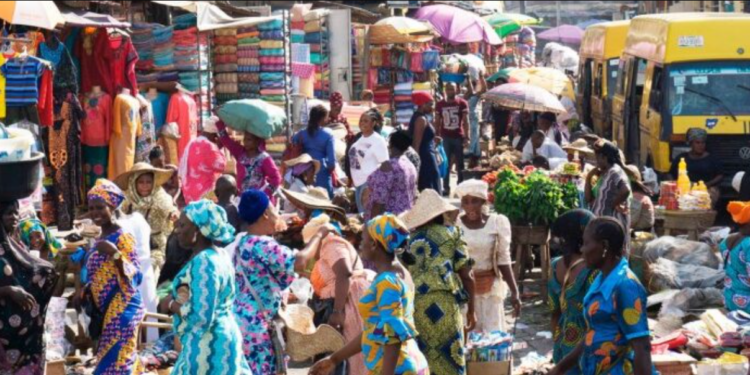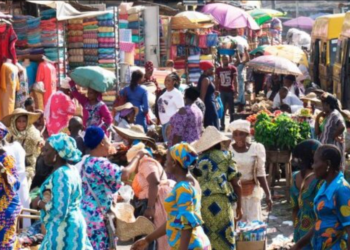Household Consumption in Nigeria Has Declined.
The alarming drop in consumption rates in Nigeria has not been discussed enough.
According to a report by the Nigerian Bureau of Statistics titled “Nigerian Gross Domestic Product Report (Expenditure and Income Approach) (Q1, Q2 2024),” published in July 2025, the data reveals a troubling trend: real household consumption expenditure has been declining since Q3 of 2023.
Specifically, household consumption expenditure fell by -42.28% in Q1 2024 and -61.18% in Q2 2024, reflecting lower rates compared to the same quarters in 2023. On a quarter-on-quarter basis, real household consumption expenditure decreased by 45.71% in Q1 2024 and plummeted by 99.24% in Q2 2024. These figures are difficult to digest.
This sharp decline in consumption is one reason many foreign multinationals are exiting Nigeria; Nigerians today struggle to afford anything priced in dollars, including imported PMS (Premium Motor Spirit).
Why Is Consumption Weak?
Consumption is weak due to stagnating wages and rising inflation. Companies attempt to stimulate sales by repackaging 500g items into 50g sachets. This sachet economy traps consumers in a cycle of inflation, making it impossible for them to bulk buy and escape rising prices.
What Can the Government Do?
1. Reduce the Cost of Food
The current moderation of inflation is mainly due to the federal government’s allowance of significant food imports. While this is necessary, there should be a clear transition strategy from imports to local production.
Unfortunately, inflation has become a security issue, not just a monetary one. To lower inflation, food prices must decrease. For food prices to decline, local food production must increase, only if there is peace in Nigeria’s farmlands.
2. Implement a Tax Holiday
While it may seem that Nigerians don’t pay taxes because the GDP tax rate is low, local businesses (particularly SMEs) face numerous hidden taxes, from TV licenses to signage fees. These costs accumulate and are often paid upfront before revenues are generated. A solution could involve a 90-day suspension of all legal and illegal taxes.
3. Fix Power Supply or Offer Power Rebates
Power costs make up approximately 30-40% of SMEs’ expenses, and these costs are ultimately passed on to consumers, stifling demand. While the government relies on these revenues, the economy needs lower prices to encourage consumer spending.
Providing a power subsidy to manufacturers could help. For example, companies could receive an 80% rebate on the power they generate and consume, deducted from their VAT obligations. This ensures that the rebate is linked to actual production.
4. Lower Long-term Interest Rates
Interest rates fall under the Central Bank of Nigeria (CBN) authority. While it is essential to maintain high Monetary Policy Rates (MPR) to curb inflation, the CBN must eventually pivot towards fostering economic growth. With MPR currently at 27.5%, meaningful consumption is unlikely.
Although lowering the MPR may risk inflation, it could be the most effective stimulus for SMEs to reenter the market and boost output, which in turn helps reduce inflation.
Don’t Wait
In conclusion, the economy operates circularly; household spending translates to firm revenues, which create more products and jobs for households, ultimately lowering prices and increasing productivity. If consumption remains weak and inflation stays high, we may require a larger stimulus package funded by debt to reflate the economy.
The key is to rejuvenate the economy before costs become prohibitively high.

























Good thoughts amd ideas.
I’m wondering what would be the time lag between implementation and results if the FG executed these policies say tomorrow morning.